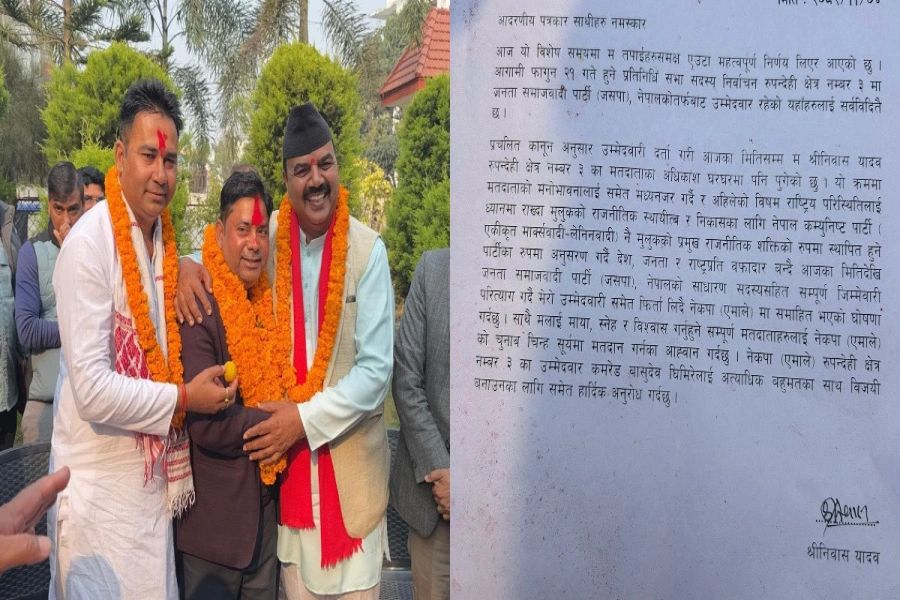A safe and effective vaccine will not solve the COVID-19 crisis. We need to address the ironies of vaccination.
COVID-19 pandemic has upended every aspect of lives around the world. Many people in the world including scientists and public health experts strongly believe that a vaccine is the only solution to combat the COVID-19 pandemic. Therefore, scientists and vaccine companies are working tirelessly to bring a safe and effective vaccine in the market. However, no matter how effective the vaccine will be, it will not solve this looming crisis until we eliminate deeply rooted mistrust against vaccines in general and burgeoning hesitancy toward the COVID-19 vaccine in specific.
At the same time, ensuring vaccine delivery in low-and middle-income countries while maintaining its potency and efficacy will be another major stumbling block. Because the world would not be safe from COVID-19 until we vaccinate a significant proportion of people around the world.
Vaccines are the most powerful inventions of the modern public health that saved and will save thousands of millions of lives. Following the path of Edward Jenner—the founder of vaccinology—we, as mankind, eradicated smallpox in 1979 and eliminated and controlled several diseases at the local, regional and national levels.
Nepal Red Cross Society, Parsa, to conduct 100 percent vaccinat...

Now, a number of scientists are working around the clock without respite to produce safe and effective vaccines. As a result, as of July 24, 2020, according to The New York times Coronavirus Vaccine Tracker, 19 vaccines are in phase I trial; 13 vaccines are in phase II trial; 4 vaccines are in phase III trial, and even one vaccine has been approved for limited use. This speed of vaccine development within a six-month period is unprecedented.
Despite great advances in science, however, we are observing record high hesitancy against the upcoming COVID-19 vaccine. Prior to the COVID-19 pandemic, as of 2018, around 90 percent of parents in the US expressed that vaccinating their children is important. However, a recent survey from the Associated Press shows that only one in two US citizens would plan to get vaccinated when a vaccine against COVID-19 is made available, showing unexpectedly high hesitancy to a novel coronavirus vaccine. In other words, while the world needs a vaccine more than ever, citizens of one of the wealthiest nations in the world are expressing their refusal to a vaccine more than ever. This is a tragic irony.
The most striking irony lies in the fact that, while a majority of the people in the developed countries like the US will have easy access to a vaccine, according to a recent survey, most of them refuse it. In contrast, people living in low-and middle-income countries of Africa and Asia who usually have low vaccine hesitancy rates will not have easy access to the new vaccine both because of financial, geographical, and political constraints.
For example, if we watch a video posted by a health worker of a remote village of Nepal in social media demonstrating three health workers crossing the flooded river while holding a vaccine carrier, we can easily imagine how challenging vaccine delivery in low and middle-income countries is. The video further depicts that amidst the COVID-19 pandemic, health workers are risking their lives to deliver routine vaccines to children.
Besides, although the major target group for vaccination at present is children, the target population who will need the COVID-19 vaccine will not be limited to children. Then, for sure, we have to face next-level challenges to deliver COVID-19 vaccines to a wider population in low resource settings.
Some political leaders may think that vaccinating people in developed countries will save their people. However, we can’t simply ignore the people of low-income countries for COVID-19 vaccination since we have observed how an outbreak in a small city of Wuhan of China could flare up to affect the entire world. At the same time, the evidence is unclear about coronavirus mutation that can cause a second or third wave in the future. Hence, the approach should not be unilateral to save people from developed countries only. Rather, it should be multipronged to cover a wider population around the world.
Therefore, scientific community, policymakers and stakeholders who are planning to combat the COVID-19 pandemic through vaccination should not only focus on discovery of safe and effective vaccines. Rather, they should also prudently plan how to eliminate vaccine hesitancy while building robust mechanisms to effectively deliver vaccines in underserved areas of low and middle-income countries.
The author is a senior Public Health Officer at Ministry of Health and Population




































